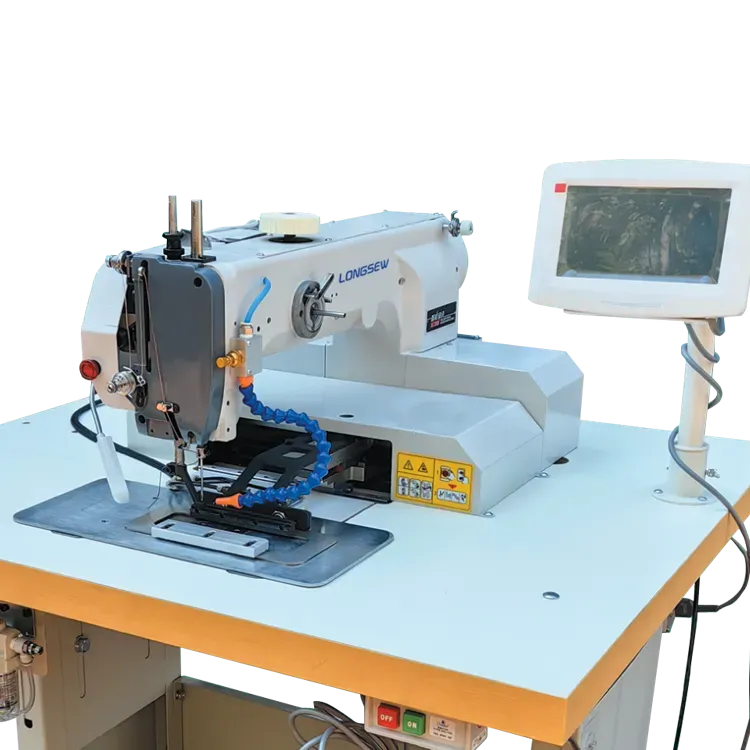leather sewing equipment
The Essential Guide to Leather Sewing Equipment
Leather crafting is a timeless skill that combines artistry with practicality. Whether you're creating handbags, wallets, belts, or other leather goods, having the right sewing equipment is crucial to achieving professional-quality results. This article aims to guide you through the essential leather sewing equipment you need to elevate your crafting experience.
While hand sewing is a traditional method, a sewing machine specifically designed for leather can significantly enhance efficiency. Look for machines equipped with walking feet or roller feet, which help guide the leather through the machine smoothly. Some popular brands offer models with adjustable speed and strength settings, ideal for stitching through various leather thicknesses. Additionally, a heavy-duty machine is advisable, as it can handle the demands of dense materials without jamming or breaking needles.
2. Needles
Selecting the right needle for your machine is vital when working with leather. Leather needles, typically referred to as leather point needles, have a wedge-shaped tip designed to pierce the material cleanly without causing damage. For hand sewing, use blunt-tipped or round needles to prevent splitting the leather. Make sure to change needles often, as a dull needle can result in uneven stitching and damage to your leather.
3. Thread
The choice of thread can greatly affect the durability and aesthetics of your leather project. Polyester or nylon threads are commonly used due to their strength and resistance to wear. For hand sewing, consider using waxed thread, which provides a better grip and reduces friction, making it easier to pull the thread through tough leather. Additionally, selecting the right thread thickness is vital; heavier threads are more suitable for thicker leathers, while lighter threads are best for delicate hides.
leather sewing equipment

4. Cutting Tools
Accurate cutting is essential for precise leatherwork. Invest in a high-quality rotary cutter or a sharp utility knife for clean, straight cuts. A cutting mat will protect your work surface and extend the life of your blades. Alternatively, for intricate designs, use leather shears or specialized cutting tools that can navigate curves and complex shapes.
5. Edge Tools
Leather projects often require finishing touches, such as smoothing and sealing edges. Edge tools, like edge bevelers and burnishers, help achieve a polished look. An edge beveler trims the edges for a more refined appearance, while a burnisher smooths and seals the edges for durability and to prevent fraying.
6. Punches and Stamps
For leatherworking, punches and stamps are essential for creating holes for stitching and decorative designs. Leather hole punches come in various sizes, allowing for customization according to your project needs. Decorative stamps can add unique designs or personal touches to your leather goods, making them one-of-a-kind pieces.
Conclusion
Investing in quality leather sewing equipment is key to enhancing your leatherworking skills and achieving successful results. Each tool plays a vital role in the overall process, from preparation to finishing. With the right equipment at your disposal, you can delve into the world of leather crafting, transforming raw materials into beautiful, functional pieces that stand the test of time. Whether you’re a beginner or an experienced crafter, the right tools will help unlock your creative potential and ensure that your projects are both efficient and enjoyable.
-
Industrial Cylinder Arm Sewing Machine: Revolutionizing Heavy-Duty SewingNewsJul.28,2025
-
Cylinder Arm Sewing Machine: Perfect for Special Sewing ApplicationsNewsJul.28,2025
-
Cylinder Bed Sewing Machine: Essential for Sewing Complex MaterialsNewsJul.28,2025
-
Heavy Duty Sewing Machine: The Essential Tool for Industrial ApplicationsNewsJul.28,2025
-
Computerized Pattern Sewing Machine: Revolutionizing Precision StitchingNewsJul.28,2025
-
Heavy Duty Industrial Sewing Machine: Power Meets PrecisionNewsJul.28,2025
-
Leather Sewing Machine: The Industrial Standard for Tough MaterialsNewsJul.18,2025





























